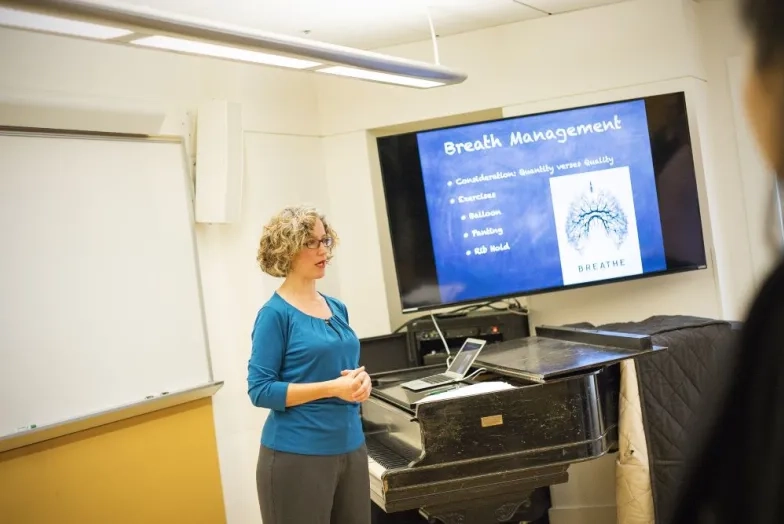Hearing Health
SFCM provides several programs and services in support of student hearing health and protection. Part of the role of any professional is to remain in the best condition to practice the profession. For all aspiring musicians, this involves safeguarding hearing health. In addition to the services listed below, the Office of Student Affairs offers wellness workshops. One of these workshops is with H.E.A.R. (Hearing Education and Awareness for Rockers) co-founder and executive director Kathy Peck. H.E.A.R. also provides hearing assessments and molds for custom-fit musicians earplugs.
Documentation and Information
The National Association of Schools of Music (NASM) and the Performing Arts Medicine Association (PAMA) have developed a comprehensive overview of hearing health issues for postsecondary schools and departments of music. NASM and PAMA have created a "tool kit" of documents focused on the issue of hearing health. The toolkit addresses the risk of noise-induced hearing loss, a widespread and serious public health issue for musicians and others. Below are the documents and informations sheets for students, staff, and faculty. Advisories on Hearing Health ›
High-Fidelity Earplugs
SFCM participates in the Etymotic Research Adopt-a-Band program. Through this program, the Conservatory makes high-fidelity earplugs available to collegiate students free of charge. Contact the Office of Student Affairs to get your own pair.
Dosimeter
The Office of Student Affairs also has a personal noise dosimeter that students, faculty, and staff may borrow. Noise-induced hearing loss is preventable, but most people do not know how long they can listen to loud sound without risking hearing damage. A single noise exposure may not result in hearing loss, but permanent damage to the inner ear from noise adds up over time. The accumulation of too much noise day to day, year after year, is the determining factor in hearing loss risk. A dosimeter measures sound levels for many hours, calculates the cumulative noise dose in percent and alerts you to the need for hearing protection.
Other Resources
- Noise-induced Hearing Loss Factsheet from the National Institute on Deafness and Other Communication Disorders
- Ten Ways To Recognize Hearing Loss from the National Institute on Deafness and Other Communication Disorders



